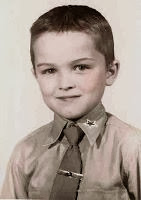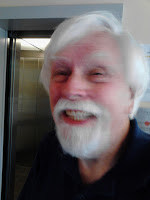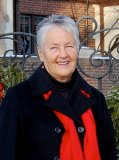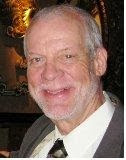Families are forever. When we look back down our family tree through our parents’ linage, the roots dig the soil descending to the dawn of prehistory. Looking forward, the branches will produce the leaves of our posterity, assuming that nothing awful happens to prevent our offspring from reproducing. My personal family tree shows periods of good fertilization, cross pollination, reseeding, decay, and pruning. It is very interesting to me as the information I’ve been able to collect turns my roots into very real people with all the hopes, dreams, foibles, vices, and courage to risk all for a better future; and not just a list of names.
According to my side of the family, my great grandfather, John Charles Nelson, at the age of 15, immigrated from Sweden to the US by stowing away on a ship leaving Denmark for the US (or possibly Canada) to live with his older brother in Minnesota. Upon arrival, he probably worked in odd jobs, but in the summer, he was a “migrant” farm worker on various farmsteads. In his twenties, he married Bertha Nordin (pronounced nor-dean) and produced several children by her of which the oldest one was my grandfather, John Leonard Nelson. When John Leonard was 9 years old, his father died in a farming accident but no one recalls how. Bertha’s photograph shows her posing in the style of the mid 1800’s; sitting, wearing a dark full-length dress, hair held tightly up in a “bun”, and with a very stern or “no nonsense young man, thank you” look on her rather plain and unadorned face; no painted hussy this lady.
According to my great uncle’s side of the family, John Charles did indeed emigrate to the US but not from Sweden, but Denmark as they were citizens of Denmark. The only other difference in the story is they report that John Charles died in Cummings, North Dakota, of exposure (hypothermia) during an alcoholic stupor. Many civil records in Cummings were destroyed in a courthouse fire in the early 1900’s. Unfortunately, the local newspaper accounts of the day were also destroyed in another fire around the same time. I have not been able to prove either version correct, yet.
As a rather amusing aside to this story, I was in Bismarck, North Dakota, trying to find an obituary for John Charles as Bertha was living there about the time of his death. While reading an old newspaper, I stumbled across (how does one “stumble across” something while sitting down reading anyway?) a “letter to the editor” containing a complaint directly related to today’s society.
The letter was written by a male shopkeeper, in about 1896, who was walking home after leaving the shop for the day. He wrote he was walking down the sidewalk and decided to take a shortcut through an alley. As he turned the corner into the alley, he noticed several boys, ages running from 6 thru 12, further down the alley. The older boys were paring up the younger boys and having them fight each other with the winner given a cigarette to smoke. He then wrote, “Now I don’t have anything against boys fighting; it’s a healthy form of exercise, but we have laws about tobacco being in the possession of minors and their not being enforced.” In over 100 years our society can’t seem to keep tobacco out of the hands of children. The more things progress, the more they stay the same.
I am sure all my immigrant forefather and foremothers (is that really a word?) were elated to arrive in America and begin building a better life for themselves and their eventual offspring. The result for John Charles, Bertha, and their children was rather tragic whether he died in an accident or due to alcoholism. That event greatly impacted future generations.
I once saw an old black and white photograph of my grandfather, John Leonard, when he looked about 9 years old, standing in snow in front of a farm style shed. He was wearing a parka, pants, and ¾ length boots. When I first glanced at it while searching a box of family photos, I thought it was a picture of me at age 9 on my mother’s father’s farm where I was living at that age. I did a double-take and looked at the photo and realized it wasn’t me or my dad or my uncle. I finally figured it out that it was my grandfather (his features closely resembled his adult photographs). I first thought it was me because the expression on his face looked like I imagined my face looked when my dad told me about the divorce and then left the next morning; a total depressed look of internal sadness.
John Leonard grew up supporting is mother and siblings, also by working odd jobs and as a farm worker. In due time, he married the rather pretty Emma Sophia Unger and fathered 7 children; five boys and two girls. The oldest boy, born on June 13th 1914, is my father, John Archie Nelson. In another tragic event, my grandfather died when my father was 9 years old. I never asked how he died or if I did, I don’t remember. When I was in my teens, I did ask my father if he worried about dying as I turned 9 years old. He said that he did indeed. Fortunately (or perhaps not considering later events involving me), he lived into his 70’s.
My father had to support his mother and siblings with only an 8th grade education acquired in a one-room schoolhouse. He went to school in the daytime and worked odd jobs, one of which was as a “house boy” (according to the US Census), until he was old enough to stop schooling and work on farms as a laborer.
He related to me the following story while driving us across a bridge he helped build during the years of Roosevelt’s “New Deal” (or perhaps after WW2). The bridge was along US Hwy 101 near the California border with Oregon. It crossed a river in a not too deep but wide ravine. To construct such a structure a cofferdam had to be built first to divert the river around the foundation construction site so the concrete pillars could be made secure in large holes below the river’s bottom. One day as he was getting into the “elevator” to be lowered into the hole with the rest of the work crew, the foreman called him out and replaced him with another worker. He was then sent to work on a different area above ground. Later that morning the cofferdam failed and all the men in the pit were drowned. Lucky break for him and indirectly, me.
As WW2 progressed, he was working as a civilian construction worker at Dutch Harbor, Alaska, when the Japanese air force attacked to provide a diversion for their main attack on Midway Island. At the time, he was driving a truck in a sort of convoy along a road by the harbor. The truck three places in front of his was hit by a bomb with the normally expected results. So, once again we were lucky.
Sometime after that incident, he joined the army where he was sent to the European Theater of war. Once there, he was assigned to escort/guard German Prisoners of War (POW) on their voyage to the POW camps in the US. Once the war was over the prisoners by and large did not want to go back to Germany, he said, but they were returned anyway. Finally, he was sent to a base in Texas to await discharge. While waiting for his turn to get out of the army, he had time to obtain a civilian pilot’s license. After discharge, he returned to Minnesota to resume his civilian life. After marriage he worked as some type of factory worker and then as a postal worker and eventually retired from there very gruntled and not disgruntled.
My mother, Shirley Mae Pearson, married him in the Lutheran church in Cambridge, Minnesota, during November 1947. I was born to them 8 months later. That’s right I attended their wedding, but out of sight. Mother was born in her mother and father’s farmhouse in May of 1927 (the same year the first color television transmission was sent and received). She also was educated in a one-room schoolhouse thru the 8th grade and then attended high school in Cambridge. She was “confirmed” into the local Lutheran Church (the same one married in) and kept her faith although not practicing it openly; usually reading the Bible in private. She met my father in Minneapolis where she was working as a (I forget). For obvious reasons, after the wedding, they moved to Lawndale, California, a suburb of Los Angeles.
Mother had a job working for a company that made glues and foam rubber products. In fact, I still use the same pillow she made for me as a child. It has new ticking but still has the original shredded foam rubber inside. I think the company may have been a division of 3M. Anyway, the company’s claim to fame at the time mother worked for them was they made an artificial fluke and the glue to attach it on a whale that lost one off her tail. The whale was named Minnie and ended up living at Marine Land. The slogan was, “Minnie the whale with the detachable tail.”
Tragically, for me, if not for them, they divorced when I was young. During the process, I was sent to live with my mother’s parents on their farm in Isanti County in east-central Minnesota, just a few miles east of Cambridge.
Mother died in her 40’s while my twin half-brother and sister were only 14 (another tragedy) from the effects of liver cancer caused by smoking. I was married by then.
The lesson to be learned from all this; family trees can be blasted by life’s lightning, stressed by heavy winds, damaged in tragic fires, and wounded by lack of water; but still continue to live and prosper when nourished by frequent periods of love.
© 1 January 2011
About the Author
I was born in June of 1948 in Los Angeles, living first in Lawndale and then in Redondo Beach. Just prior to turning 8 years old in 1956, I began living with my grandparents on their farm in Isanti County, Minnesota for two years during which time my parents divorced.
When united with my mother and stepfather two years later in 1958, I lived first at Emerald Bay and then at South Lake Tahoe, California, graduating from South Tahoe High School in 1966. After three tours of duty with the Air Force, I moved to Denver, Colorado where I lived with my wife and four children until her passing away from complications of breast cancer four days after the 9-11 terrorist attack.
I came out as a gay man in the summer of 2010. I find writing these memories to be therapeutic.
My story blog is TheTahoeBoy.Blogspot.com









